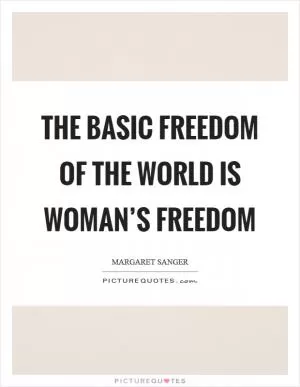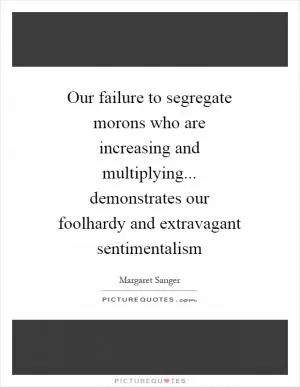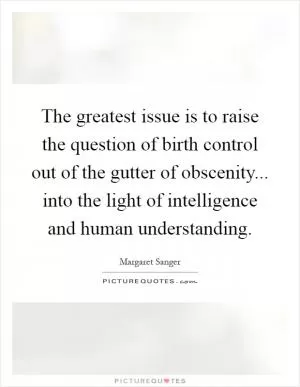The most merciful thing that a family does to one of it's infant members is to kill it

The most merciful thing that a family does to one of it's infant members is to kill it
Margaret Sanger, the founder of Planned Parenthood and a prominent figure in the birth control movement, is often quoted as saying, "The most merciful thing that a family does to one of its infant members is to kill it." This statement has been widely criticized and taken out of context by opponents of Sanger and the reproductive rights movement. However, when examined in the context of Sanger's work and beliefs, it becomes clear that she was advocating for the rights of women to control their own bodies and make informed decisions about their reproductive health.Sanger was a strong advocate for birth control and family planning, believing that women should have the right to choose when and if they wanted to have children. She saw the consequences of unwanted pregnancies and unsafe abortions firsthand, and believed that access to contraception was essential for women to have control over their own bodies and lives. In this context, Sanger's statement can be interpreted as a call for families to have the compassion and understanding to prevent the suffering that can result from bringing a child into the world when they are not prepared or able to care for it.
Sanger's work was motivated by a desire to improve the lives of women and families, particularly those who were living in poverty and facing the challenges of large families and limited resources. She believed that access to birth control would empower women to make choices about their own bodies and futures, and ultimately lead to healthier, happier families. In this sense, her statement can be seen as a plea for families to consider the well-being of their children and the impact that bringing a child into the world can have on their lives.
While Sanger's words may be controversial and shocking to some, it is important to consider the context in which they were made and the larger goals of her work. By advocating for women's rights and access to contraception, Sanger sought to empower women to make informed choices about their reproductive health and ultimately improve the lives of families and communities.












 Friendship Quotes
Friendship Quotes Love Quotes
Love Quotes Life Quotes
Life Quotes Funny Quotes
Funny Quotes Motivational Quotes
Motivational Quotes Inspirational Quotes
Inspirational Quotes